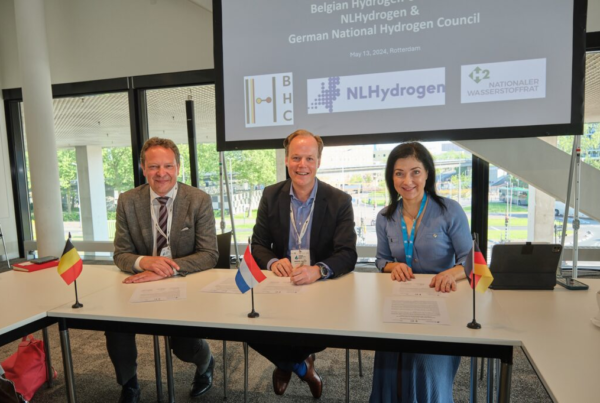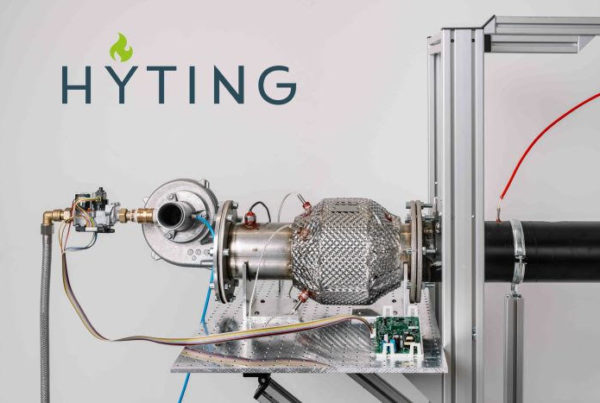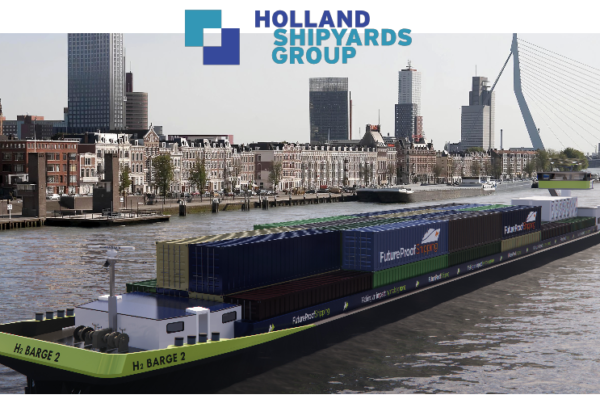
Excessive EU regulation is stalling the development of competitive hydrogen infrastructure in Europe, the head of Germany’s largest energy company RWE, Markus Krebber, told newspaper Handelsblatt in an interview.
Especially given more attractive conditions the U.S. government offers for investments in climate action through its Inflation Reduction Act (IRA), the EU would lose precious time by imposing conditions that slow down investments.
The Commission insisted that green hydrogen can only be produced using additional renewable power sources that are rolled out in parallel. “Why is that the case? CO2 emissions are determined by the European trading system (ETS) and cannot increase due to hydrogen production,” Krebber said, arguing that this “double regulating” would greatly slow down the scale-up of key future technologies.
The U.S. government’s IRA, on the other hand, would offer greater long-term stability and pragmatic solutions for investors, the RWE head said. However, the company still plans to make the majority of its investments in Europe in the coming years, including 15 billion euros in Germany by 2030. Krebber said the German government’s renewable power targets are “rationally derived,” but progress should be reviewed regularly to stay on track. “But you also have to ask whether it’s possible to just double the greatest annual capacity expansion for wind power achieved so far and make that the new standard,” he added. But pondering whether goals are realistic would not change things for the better and the focus has to be on improving conditions. This was particularly true for offshore wind power, the new “backbone” of the power system, where a lack of required construction equipment and the uncertain production of new turbines has cast doubt on the government’s ambitious expansion targets.
Green hydrogen production plays a central role in German and European energy transition plans, as the gas produced with renewable power could be used to decarbonise sectors where emissions reduction is very difficult to achieve otherwise; for example in industry processes or aviation. The economic impact of the coronavirus pandemic and the energy crisis, as well as the need to bring economies on track towards international climate targets, has prompted governments in Europe and North America to introduce far-reaching support programmes aimed at stimulating investments. But there are also fears that this will drive protectionist tendencies and trade conflicts between the EU and the U.S.
Irvine, said, “The results make stored hydrogen now the lead contender to provide ‘dry year’ capacity and provide security and affordability in a totally renewable system. Even considering overall conversion efficiency, it is an attractive option that offers many benefits. The findings have interesting implications for the future use of gas infrastructure, particularly underground gas storage.”
Irvine says Energy Link’s analysis is likely to inform work on the NZ Battery project, which had shortlisted hydrogen storage as one of three non-hydro options for solving the dry-year problem.
“We urge policymakers to approach renewables with an open mind. The nation cannot afford to be dogmatic about how we reach the 2050 goal.”
Firstgas commissioned the independent study as part of what is now a four-year old programme of work preparing the transition to renewable gases. It follows on from the release of the company’s Hydrogen Feasibility Study in 2021.
Read the most up to date Fuel Cell and Hydrogen Industry news at FuelCellsWorks





